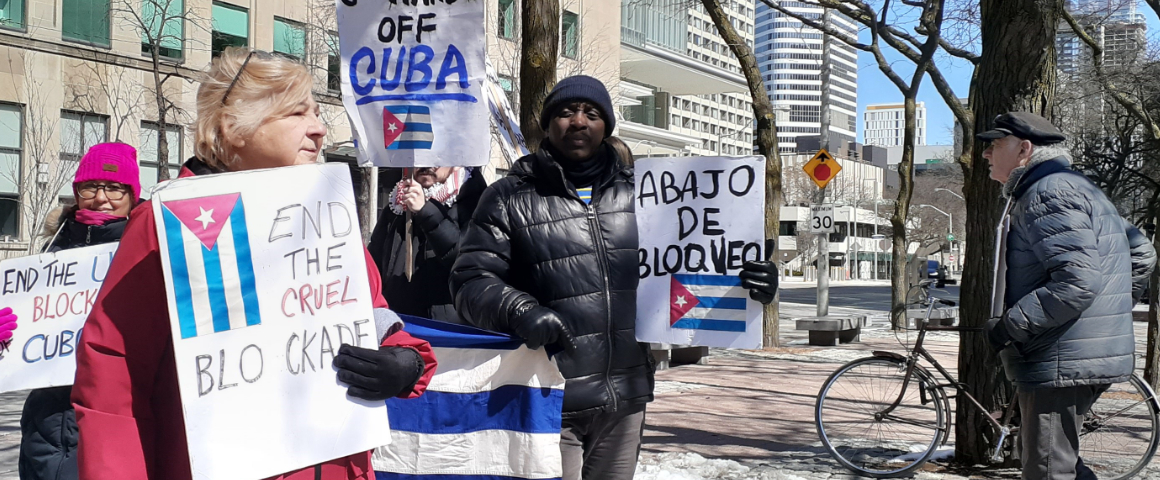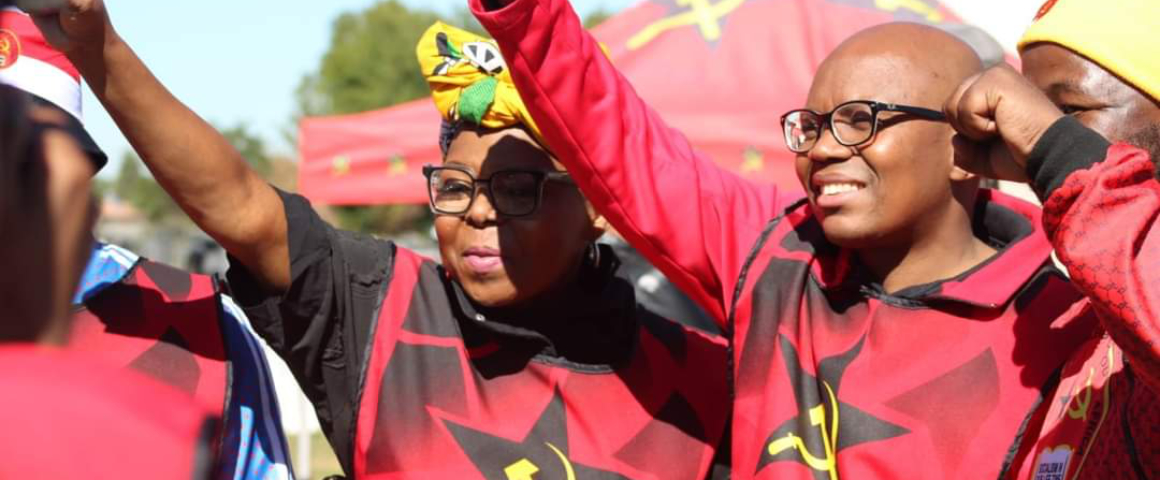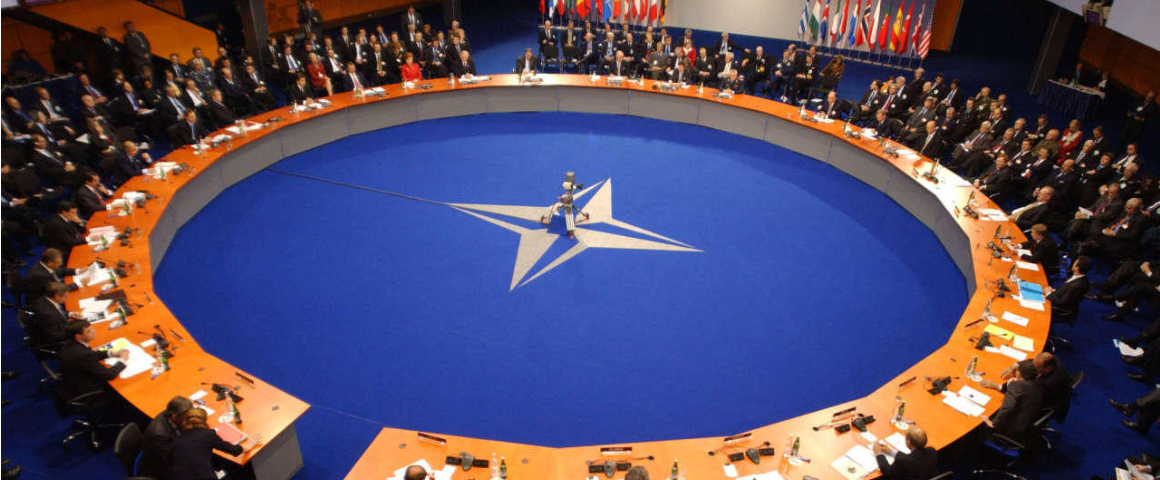By Rob Crooks
Two significant developments regarding US-Cuba relations took place in May which suggest the US government might be testing the waters of a new strategy on Cuba.
Not not cooperating but sponsoring
On May 15, the United States government said they had removed Cuba from the list of states that “do not fully cooperate” with US counterterrorism efforts. State Department spokesperson Vedant Patel explained that “the US and Cuba resumed law enforcement cooperation in 2023, including on counterterrorism,” making Cuba’s inclusion on the list “no longer appropriate.”
As rationale for this move, Patel also cited Colombian President Gustavo Petro’s 2022 suspension of the extradition warrants for former Colombian guerrillas living in Cuba. These warrants were the primary justification for former US President Donald Trump returning Cuba to the much more debilitating list of State Sponsors of Terrorism (SSOT) in 2021, despite the fact that amnesty for the Colombian guerrillas was a mutually agreed upon condition of the peace talks.
William LeoGrande, the ex-Democrat staffer, expressed what many hope to be the case when he told Reuters that formally acknowledging Cuba’s role in countering terrorism “could well be a prelude to the State Department reviewing Cuba’s designation as a state sponsor of terrorism.” After all, as many have pointed out, inclusion on one list and not the other seems contradictory.
Cuban Assets Control Regulations
Later in the month, on May 28 the US Treasury Department made amendments to the Cuban Assets Control Regulations, “to promote internet freedom in Cuba, support independent Cuban private sector entrepreneurs, and expand access to certain financial services for the Cuban people.” In short, US-based social media will expand its presence in Cuba, and private business owners will now be able to open US bank accounts and bank online.
In recent years, Cuba has cautiously introduced liberal economic reforms to encourage private sector entrepreneurship and to solicit direct foreign investment in basic production and manufacturing. Some utopians deride these policies for betraying the Revolution’s socialist ideals, rather than analyzing them as a means of accumulating the capital necessary for the development of a more self-reliant and diversified economy under the extreme duress caused by imperialism’s maximum pressure campaign.
Nonetheless, there are potential risks associated with these policies, of which Cuban leaders are no doubt keenly aware. By facilitating access to dollars for entrepreneurs through US bank accounts and multiplying online channels for disseminating propaganda, the US is almost certainly attempting to bolster a petit bourgeois opposition to the socialist government.
Cuba responds
The Cuban responses to Washington’s May policy changes have been rightly suspicious. Cuba’s Ministry of Foreign Affairs (MinRex) released a statement pointing out the farcical nature of the United States giving itself the authority to decide who is and who is not supporting terrorism. The United States has a thoroughly documented history of supporting terrorist acts against Cuba, going back as far as the false flag on the USS Maine in 1898.
The Cuban state, in contrast, has consistently fought terrorism internationally, including inside the United States. When intergovernmental communications requesting the FBI investigate terrorist activities among anti-communist Cuban exiles in Florida were ignored, the Cubans were forced to act alone. Instead of cooperating, the US imprisoned the Cuban 5 for infiltrating terrorist cells and gathering intel of actual plots to unleash violent attacks against the Cuban state.
The statement from MinRex in response to the US policy targeting entrepreneurs in Cuba was even more critical. Changes to the Cuban Assets Control Regulations, the statement reads, seek to “punish Cuba’s state sector, knowing that this is the one that offers essential services such as education, health, culture, sports and others to all Cubans, including the private sector.” There is only one Cuba, in other words, and depriving oxygen to the socialized base suffocates the entire economy.
Expanding social media into Cuba is another mundane-sounding tactic that serves nefarious purposes. In March of this year, for example, the Cuban government attained leaked documents that detail the CIA’s plan to cause hyperinflation in Cuba by, among other means, using social media to distort the exchange rate between the Cuban peso and the US dollar. Social media also played a central role in coordinating the failed attempt at escalating the Cuban people’s frustrations over power outages and food shortages caused by the blockade into a Cuban Maidan in July 2021.
A new strategy?
Some aspects of these two policy changes have the potential to create positive results for the Cuban people, and are to some degree welcome. From the US side, they may represent an intermediate stage in a transition from Trump’s style of fomenting instability in Cuba to something closer to Obama’s soft power approach. While the Obama-era strategy had a friendlier demeanor and allowed the Cuban people a little more room to breathe, it was still imperialist in nature and ultimately shared the same aim of overthrowing Cuba’s socialist system.
In a recent article for The Conversation, a former Director of the Counterterrorism Finance and Designations Office of the US State Department under Obama said as much. “The Obama administration removed Cuba from the list in April 2015,” wrote Jason M. Blazakis, “having concluded that decades of sanctions levied against the country had not worked – Cuba retained its communist ideology.” Blazakis, a director of “counterterrorism sanction initiatives,” arrogantly suggests that if these recent moves by the US government are to evolve into something more substantial, like removal from the SSOT list, the Cuban government will have to “open up to reforms” – in short, show their willingness to forfeit their self-determination.
Blazakis doesn’t give much substantial consideration to why the Trump approach may not be working, however. In addition to its strong relations with neigbourhood powers Venezuela, Brazil and Mexico, Cuba is expanding relations with Russia, Iran and China who continue to defy the US blockade by sending aid. China in particular has offered significant debt relief to Cuba, has plans to integrate Cuba further into the Belt and Road Initiative, and is helping Cuba achieve energy independence through partnerships in oil drilling and solar energy farms.
This must disturb Washington, perhaps signaling to them that it’s time to switch to a strategy of penetrating into Cuban society via privileges granted to the emerging private sector to counter international solidarity with Cuba and strengthen the base for the “colour revolution” they so desperately desire.
But as Fidel wrote during Obama’s visit to Cuba in 2016, “nobody should be under the illusion that the people of this dignified and selfless country will renounce the glory, the rights or the spiritual wealth they have gained with the development of education, science and culture.”
Support socialist media!
If you found this article useful, please consider donating to People’s Voice or purchasing a subscription so that you get every issue of Canada’s leading socialist publication delivered to your door or inbox!
For over 100 years, we have been 100% reader-supported, with no corporate or government funding.




